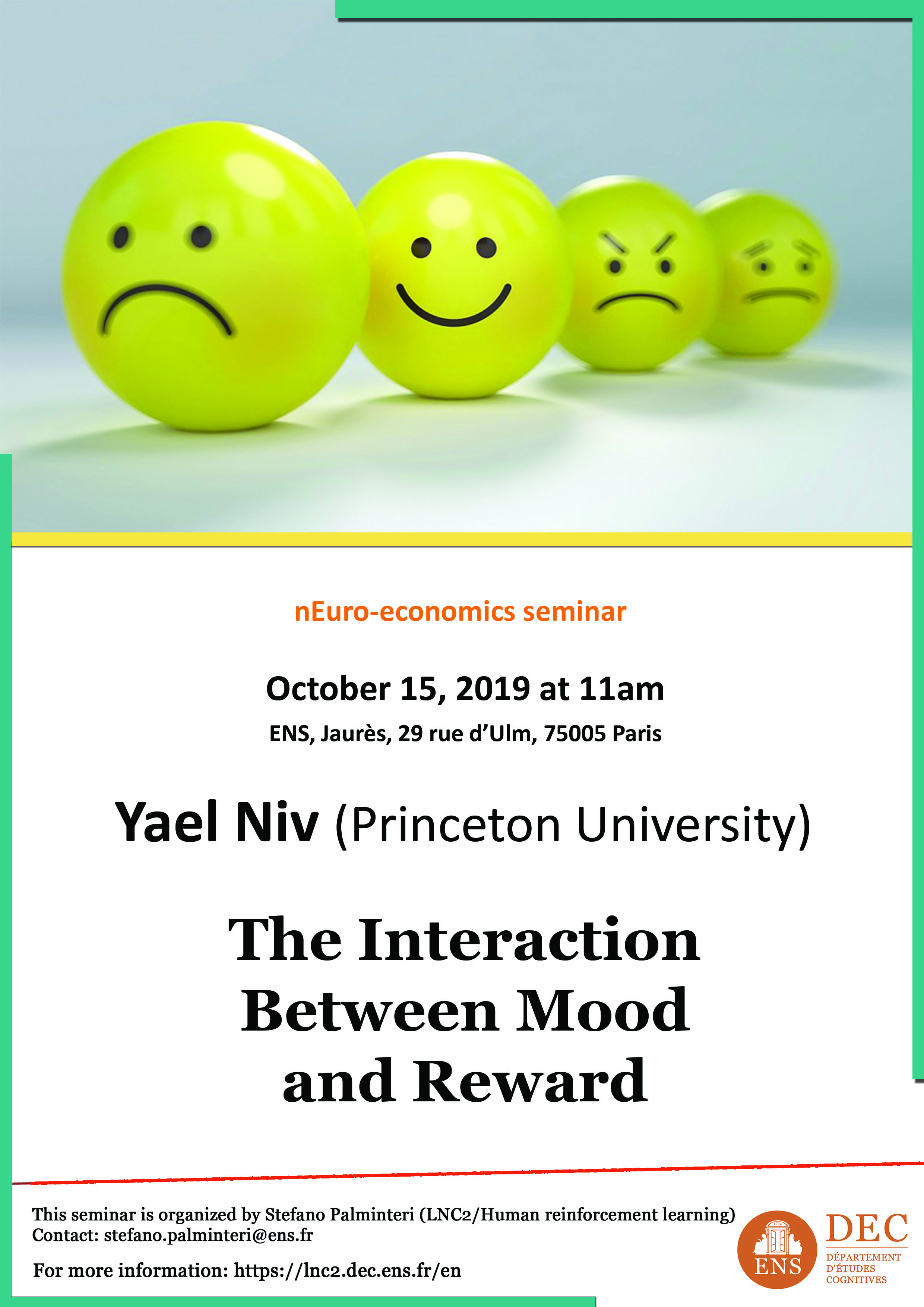
The Interaction Between Mood and Reward
ENS, salle Jaurès, 29 rue d'Ulm, 75005 Paris
A good mood can be a blessing, but persistent bad moods or mood swings are so detrimental to our well-being that they are at the root of many psychiatric disorders. In this talk, I will present a computational model of mood and valuation that suggests that mood and unexpected outcomes (rewards or punishments) influence each other bi-directionally. After showing empirical evidence for both sides of the interaction, I will discuss the theoretical implications of such a positive feedback loop, especially for pathologies of mood instability. Finally, I will suggest that mood is not simply epiphenomonological, but might play a role in tracking global changes in the environment. This is especially useful in environments with dependencies between different states, and across time (momentum). Properly calibrated, mood may therefore allow rapid adaptation to some kinds of change and generalization of learning from one situation to another.

